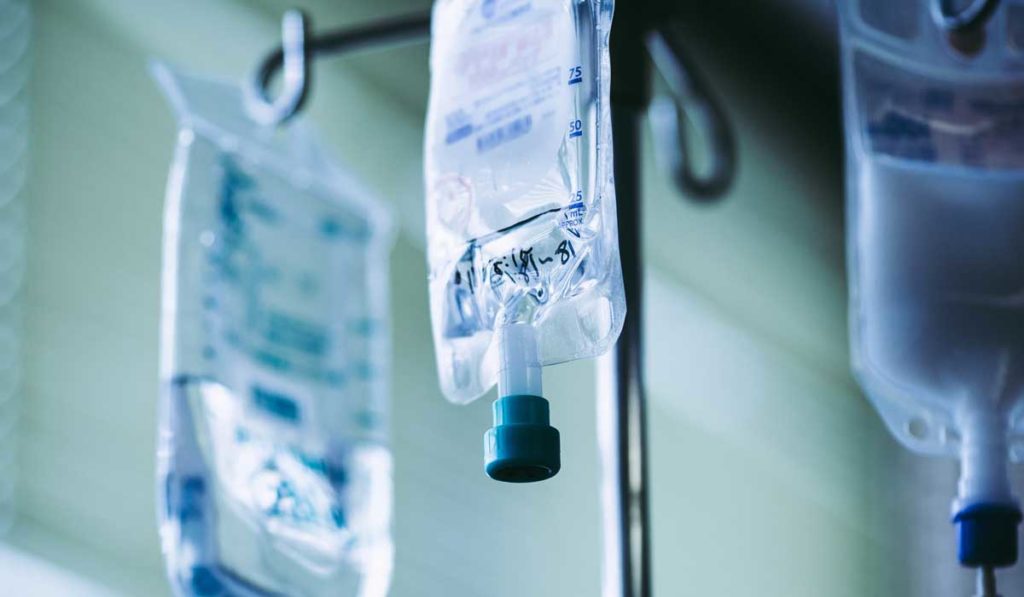Remdesivir may be a promising approach to treat advanced COVID-19 disease, according to preliminary data released by the National Institutes of Health (NIH) from an ongoing clinical trial.
The international trial, which includes investigators from Vanderbilt University Medical Center, is showing that adults who received remdesivir are recovering an average of four days faster (11 days versus 15 days, a 31 percent acceleration) than patients who were given a placebo. It is only a preliminary look at the data, and additional data are expected to be available in the upcoming weeks.
“This is a very large, carefully designed trial with over 1,000 patients enrolled in the U.S. and around the world. Patients were given the drug at various stages of their illness and with various levels of severity; it is definitely encouraging that we can see faster recovery even with this first look at the data,” said Vanderbilt’s principal investigator C. Buddy Creech, M.D., director of the Vanderbilt Vaccine Research Program.
“It is definitely encouraging that we can see faster recovery even with this first look at the data.”
Trial Structure
The newly released data are from the Adaptive COVID-19 Treatment Trial, a randomized, controlled clinical trial to evaluate the safety and efficacy of remdesivir in hospitalized adults. The NIH noted it is the first clinical trial launched in the U.S. to evaluate an experimental COVID-19 treatment, though 21 of the 68 study sites extend to Europe and Asia.
Adults enrolled in the trial received either placebo or 200 mg of remdesivir administered intravenously on day 1, followed by a 100 mg daily maintenance dose of remdesivir while hospitalized for up to 10 days. The trial enrolled its first patient, an American, in February 2020.
Survival Benefit
The FDA released promising data after an interim analysis from the trial’s independent data and safety monitoring board.
The analysis revealed that, in addition to a more rapid recovery, remdesivir also affords a survival benefit. Mortality rates for adults who received remdesivir are currently at 8 percent, as compared to 11.6 percent of the placebo group.
The trial, which is no longer enrolling, includes 1,063 adults with advanced COVID-19 disease. The investigators now have promising data in hand to support switching adults in the placebo group to remdesivir and begin comparing other treatment options. “This trial was an adaptive trial designed to incorporate additional investigative treatments,” wrote the NIH in its announcement.
Drug Availability
Remdesivir was developed by Gilead Sciences, Inc. to treat patients infected with the Ebola virus. Vanderbilt researchers have also studied the investigational drug as a treatment for SARS (severe acute respiratory syndrome) and MERS (Middle East respiratory syndrome), both of which are caused by coronaviruses. Gilead provided remdesivir for the recent trial at no charge.
Remdesivir has been “pretty difficult to get” outside of the trial, said Patty W. Wright, M.D., associate director of the Division of Infectious Diseases at Vanderbilt, at a recent virtual town hall meeting. While it is FDA-approved for compassionate use, she notes additional trials are needed before remdesivir might be widely available.






